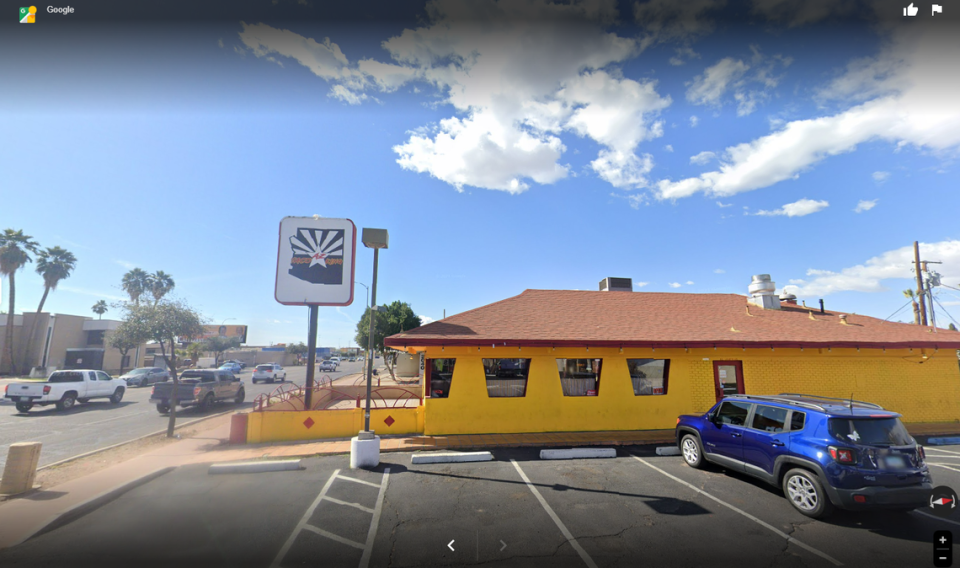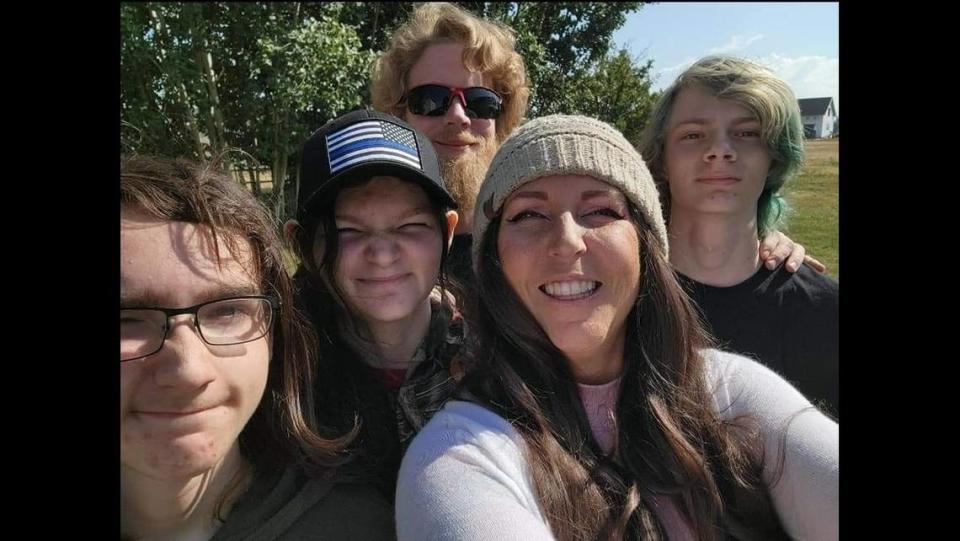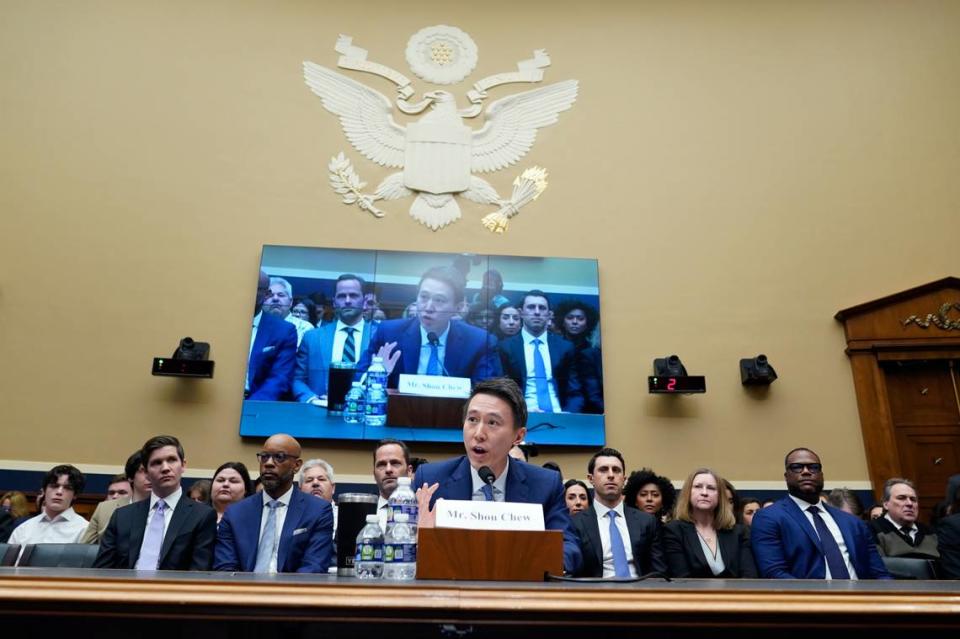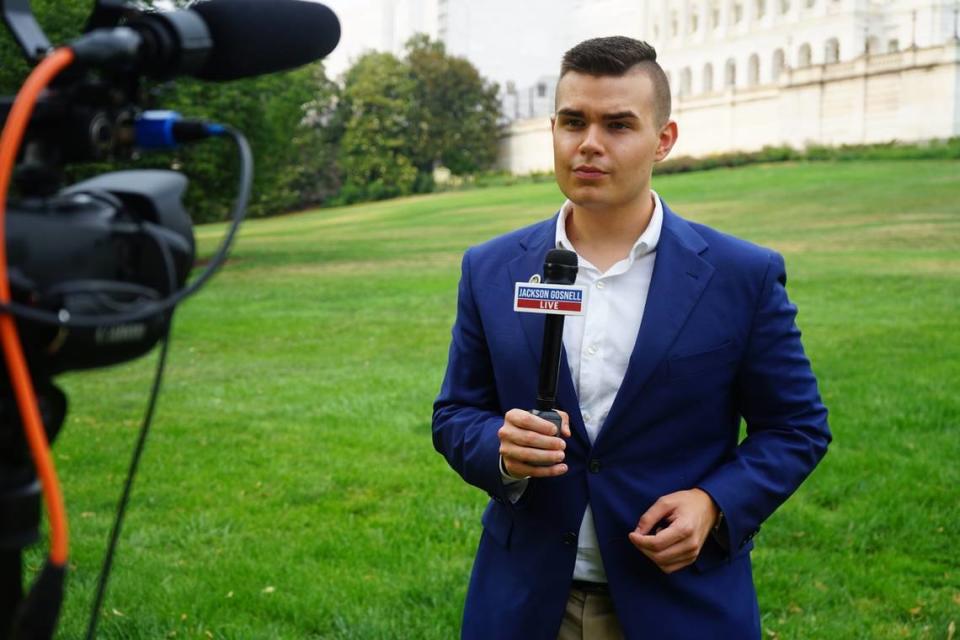Some TikTok creators fear total US ban. Here’s where restrictions on app stand
What started as an Arizona couple’s side business selling street tacos from a food cart to support their family of six has blossomed into three brick-and-mortar storefront restaurants in Arizona — with a little help from TikTok.
After a customer’s video showing off their cuisine went viral on the social media platform during the early days of the COVID-19 pandemic in March 2020, the demand skyrocketed, the owner of AZ Taco King, who goes by Jazmin or “Jazz,” told McClatchy News in an interview.
“People were calling us day and night … all our phone numbers and asking where the tacos were,” Jazmin, 34, of Phoenix, said.
“I was telling my husband, like, this could be it,”Jazmin said, while explaining she and Samuel Sears both lost their full-time jobs when COVID-19 hit and were struggling financially as a low-income family.
So the couple combined their savings and opened their first AZ Taco King in Phoenix in September 2020. Now the family-owned business, which involves two of their sons, has nearly 28 employees, locations in Avondale and Glendale and a food truck.

About a year ago, Jazmin created a TikTok page for AZ Taco King. The account, which showcases an array of Mexican dishes the business serves — including birria tacos, tortas, quesadillas and more — has amassed over 85,000 followers.
Sometimes after posting a TikTok video, customers come surging in, she said.
@aztaco.king 2 months at our new location in Avondale We also have a shop in Phoenix #tacoshop #azcheck #azfood #arizonafood #foryou #parati #tacos #azfyp #tiktokmademedoit #tiktokmademebuyit ♬ original sound - Fuerza Regida
Jazmin is one of more than 150 million TikTok users in the U.S., where calls to ban the app, owned by Chinese tech company ByteDance and headquartered in Beijing, have emerged from lawmakers in recent months — particularly over national security concerns in relation to China.
When President Joe Biden signed the bipartisan omnibus spending bill on Dec. 29, it banned TikTok on federal government devices, McClatchy News previously reported. Meanwhile, several states have restricted accessing the app on state-owned devices.
U.S. universities and colleges have made similar moves, with Clemson University in South Carolina being one of the most recent universities to ban access to the social media app on campus servers and WiFi networks, according to The Tiger, its student newspaper.
Montana TikTok creator joins historic legal battle over TikTok

When Heather DiRocco joined TikTok in 2018, she wanted to see whether the app was safe for her three children, she told McClatchy News in an interview. Then, she started making and sharing her own videos for fun.
DiRocco, 36, of Bozeman, Montana, is part of a group of TikTok creators suing the state over its TikTok ban, which she first learned about from one of her followers on the site.
That ban on TikTok became a reality for residents in Montana, the first state to outlaw the app, on May 17. The ban, which is meant to go into effect on Jan. 1, is being challenged in court.
In signing the law, Gov. Greg Gianforte said the move was a measure to protect Montantans’ private data and personal information from the Chinese Communist Party.
Those five Montana-based TikTok creators and TikTok Inc. filed separate federal lawsuits against Attorney General Austin Knudsen in response, arguing the ban is unconstitutional and violates the First Amendment. The cases were consolidated on June 28, and both parties have asked the court to prevent the ban until the cases are settled, court records show. A hearing on the matter is scheduled to take place on Oct. 12.
“We expected legal challenges and are fully prepared to defend the law that helps protect Montanans’ privacy and security,” Emily Flower, a spokeswoman for Knudsen, told McClatchy News in a statement.
“The Chinese Communist Party is using TikTok as a tool to spy on Americans by collecting personal information, keystrokes, and even the locations of its users — and by extension, people without TikTok who affiliate with users may have information about themselves shared without even knowing it.”
DiRocco, a Marine Corps veteran, has gained 200,000 followers and millions of views on the platform, where she posts comedic skits and content about makeup, cosplay and mental health.

The bulk of her following has come from her short comedy skits based on her military experience, she said. DiRocco also uses the app to connect with others, including veterans.
@ladydredknot #truestory #storytime #pvt #pfc #womanmarine #femalevet #weservetoo #weservedtoo #army #marines #usmc #marinecorps #usmcvet #navy #army #coastguard #wtfmoments #cringeworthy #usmcveteran #usmclife #Sgt #angrysgt #usmcangryveteran #angryvet #comedy #nco #femalemarine #Miltok #vettok #bluecheckmark #verifyme #viral #fyp #fypシ #ladydredknot ♬ Morsmordre(莫斯莫多) - Crazy Donkey
In regards to the state’s TikTok ban, she said “it’s actually really terrifying to me that this could be a reality. Last time I checked, that’s not what this country stood for in restricting and silencing things.
“I don’t see it passing,” she added. “However, I’m also expecting the worst. And if it does pass, I’m gonna be incredibly shocked.”
DiRocco said she joined the lawsuit after being approached by attorneys representing the case. The lawsuit is being funded by TikTok, the company confirmed to McClatchy News.
In addition to owning two businesses in Montana — a manufacturing company and seasonal witch shop — DiRocco earns supplemental income on TikTok from both user engagement and brand deals she occasionally participates in.
TikTok users, including those in Montana, with a large following may earn income as part of the company’s Creator Fund, the Montana lawsuit points out.
“Many creators have expressed major concerns both privately and publicly about the potential impact of the Montana law on their livelihoods,” TikTok spokesperson Jodi Seth told McClatchy News of the state ban. “We will support our creators in fighting for their constitutional rights.”
Other efforts underway to ban TikTok and national security concerns
The prospect of a TikTok ban has left many experts divided.
“Any ban on TikTok is going to fail as a constitutional matter,” Ashley Gorski, an attorney of the American Civil Liberties Union, told McClatchy News. “And that’s because under the First Amendment, we have the right to speak, to express ourselves, to access news and to receive information from others.”
Joel Thayer, a technology and telecommunications attorney based in Washington, D.C. and president of the Digital Progress Institute, who supports Montana’s TikTok ban, disagrees.
“Banning TikTok is not only Constitutional, but an absolute necessity if we want to prohibit China from spying on us,” he told McClatchy News in an email interview.
The Justice Department’s criminal division is investigating ByteDance over whether it has spied on U.S. citizens, including journalists, Forbes reported on March 16, days before TikTok CEO Shou Zi Chew testified before U.S. lawmakers at a congressional hearing on March 23.
At the hearing, Chew denied ByteDance had engaged in such conduct and that the Chinese Communist Party has influence over the company, Reuters reported.

On the federal level, one bill known as the Restrict Act, introduced by Democratic Senator Mark Warner of Virginia on March 7, is designed to facilitate a government ban on TikTok without doing so directly, Gorski explained.
According to the bill’s summary, if signed into law, the U.S. Secretary of Commerce would have the authority to “identify, deter, disrupt, prevent, prohibit, investigate, and mitigate transactions” involving technology products and services, including social media apps, in which “any foreign adversary (such as China) has any interest, and (2) that pose an undue or unacceptable risk to U.S. national security or the safety of U.S. persons.”
The day of its introduction, the bipartisan bill received public support from the Biden Administration, which has been clear about its security concerns over TikTok.
The administration “is focused on the challenge of certain countries, including China, seeking to leverage digital technologies and Americans’ data in ways that present unacceptable national security risks,” a White House national security spokesperson previously told McClatchy News.
To address national security concerns, TikTok has been working on a plan called Project Texas with the Committee on Foreign Investment in the United States for the past two years.
The company has spent about $1.5 billion to implement the plan and its goal of safeguarding TikTok U.S. user data and ensuring the platform is “free from outside influence.”
In connection with Project Texas, a subsidiary called TikTok U.S. Data Security was established to “manage all business functions that require access” to U.S. user data and ensures content shown on the platform in the U.S. isn’t being manipulated by outside influences.
TikTok gives journalism student a platform to anchor the news
As conversations continue on the best way to handle security concerns surrounding TikTok, creators are left with uncertainty.
Jackson Gosnell, 19, is a broadcast journalism student at the University of South Carolina who shares news stories with more than 132,000 TikTok followers.
He started posting news videos on the platform during the COVID-19 pandemic, sharing information about virus cases and trending stories.
From that point on, his following grew, he told McClatchy News in an interview.

“Most people no longer watch a television newscast,” he said. “And so this is a way for me to continue to reach people and give them just a small portion of news.”
@jacksongosnell A debris field was discovered within the search area by an ROV. #titanic #submersible ♬ original sound - Jackson Gosnell
In addition to trending stories, Gosnell focuses on politics, covers different presidential campaigns and interviews politicians, including Republican presidential candidate Vivek Ramaswamy.
When asked how he’d feel about a TikTok ban, he said such a measure would be “devastating.”
“I feel like we would be shutting down our freedom of speech if we begin picking and choosing which avenues we decide to block off for information to be shared,” Gosnell said.
Gosnell said he believes politicians have legitimate concerns when it comes to China but feels talks of a U.S. TikTok ban are largely political.
“I understand there’s real concerns,” he said. “I talk to some of these people who go on television and act crazy about the app and I understand why they do it. Most of the time it’s for political points.”
In a new Pew Research Center survey involving 5,101 U.S. adults, 59% said they see TikTok “as a major or minor threat to national security.” Based on the findings, released on July 10, older adults and adults who don’t use TikTok were more likely to view it as a threat.
More on the Montana ban
When it comes to Montana’s TikTok ban — which not only bans the app but seeks to punish app stores that allow people to download it — Thayer said “states have a right to protect their citizens when the federal government will not act.”
In regards to the First Amendment, Thayer said Montana’s law doesn’t violate it, as argued in both lawsuits, and expects the ban to survive the legal challenges.
He pointed to the U.S. Supreme Court case Arcara v. Cloud Books, Inc., when justices ruled in 1986 that New York state didn’t violate the First Amendment when it shuttered an adult bookstore accused of engaging in prostitution for health violations.
“Even though we think of a bookstore as a quintessential venue for First Amendment activity, the Supreme Court ruled that the First Amendment did not prevent the government from shutting down the bookstore because the government was acting based on the owner’s decision to engage in prohibited, non-speech conduct, in this case the solicitation of prostitution,” he said. “For Montana’s law specifically, it wisely targets the conduct of app stores and the app itself as opposed to the content occurring on the app.”
“Given that ByteDance has shown that it uses TikTok to spy on Americans and the ban is not attempting to ban certain users or speech on other platforms (e.g., Instagram, Snapchat, etc.), it will likely pass constitutional muster under the First Amendment or avoid the issue entirely as New York did in Arcara.”
Gorski, however, fully expects the courts to strike down Montana’s ban as unconstitutional as she said it clearly violates the First Amendment.
The federal government or state government “cannot impose a total ban on a communications platform like TikTok, unless it is the only way to prevent extremely serious, significant, immediate harm to national security.”
She said to date “there is no public evidence of that type of harm.”
If a total ban on TikTok in the U.S. became a reality, Jazmin said it’d be “pretty scary” and could harm her business, which she hopes her sons will take over one day.
For her, other platforms, such as Facebook or Instagram, don’t compare to TikTok in terms of bringing exposure to her business and leading to sales in return.
“If it wasn’t for TikTok, we wouldn’t be able to open the locations that we have right now … so it definitely would be very, very hurtful to us,” Jazmin said.
Author from Texas was feeling ‘super defeated.’ Then a TikTok changed his career
Watch TikToker’s flight to NC turn into a ‘private party’ after an 18-hour delay
27-year-old TikToker faces cancer treatment with hilarious outlook. See inspiring videos

